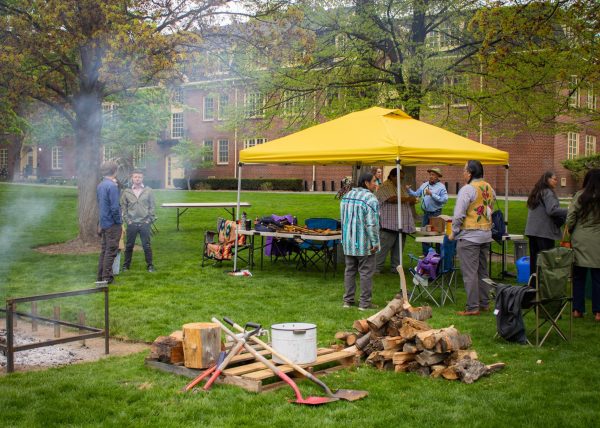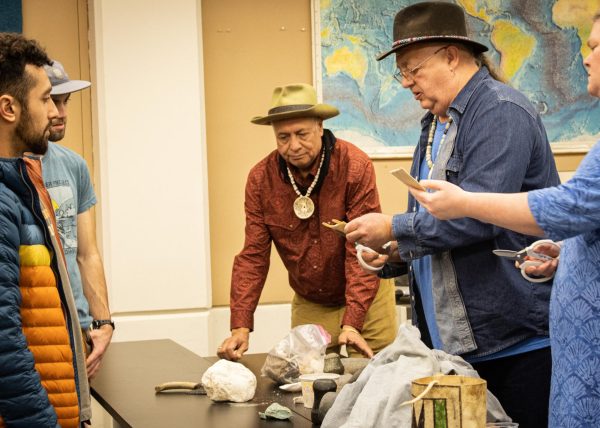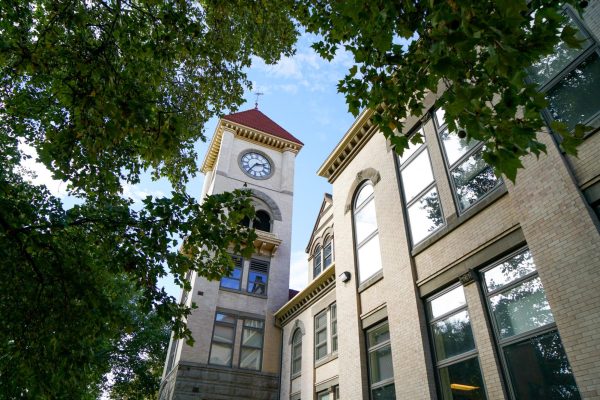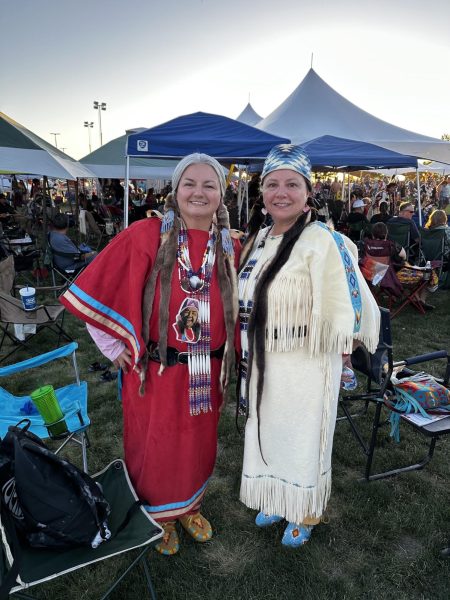Unmaking Whitman, Unlearning the Myth: Considering the Whitman’s legacy
October 21, 2021
Throughout the week following Indigenous Peoples’ Day, falling on Monday, Oct. 11 this year, Whitman’s history department and the Confederated Tribes of the Umatilla Indian Reservation (CTUIR) co-sponsored a series of events titled ‘Unmaking Whitman, Unlearning the Myth.’ Over the course of three days, guest speakers, Whitman faculty and community members of the CTUIR critically rexamined the legacy of Marcus Whitman.
The series started off on Thursday, Oct. 14 with a talk from Sarah Koenig, author of Providence and the Invention of American History. Koenig is an Assistant Professor of History at the Ramapo College of New Jersey. Her recently released book has been incorporated into many first-year seminar syllabi this year.
Koenig grew up in the Pacific Northwest and was interested in understanding why the history she was taught of her home ignored such complicated and violent histories.
“One of my goals in writing this book was to rethink how we tell the history of this region (and of the American West in general),” Koenig said in an email to The Wire. “We can only break out of the damaging historical patterns we’ve developed if we understand how we got here.”
The second event followed on Friday, Oct. 15, where Koenig was joined by Blaine Harden, author of Murder at the Mission: A Frontier Killing, Its Legacy of Lies, and the Taking of the American West. The two authors discussed their work and were preceded by comments from several Whitman faculty members and Bobbie Conner, Director of the Tamastslikt Cultural Institute. This series concluded on Saturday, Oct. 16, with a book talk at the Tamástslikt Cultural Institute near Pendleton, Oregon.
Stan Thayne, Lecturer in environmental studies, anthropology, religion and politics, spoke at the second presentation. Thayne reflected that in comparison to past events Whitman has hosted on the topic of the Whitman legacy, this series encouraged deliberateness in considering our relationship to these stories and this place.
“I think there is a desire in the administration to do this quietly, to not upset the town, but sometimes that means leaving students and faculty in the dark as to what’s happening. I think we should really be intentional and transparent about what we’re doing. If all we do is remove the statue, I almost think we’d be better off not removing it. It just soothes our conscience. It’s the process itself that is significant,” Thayne said. “Even if the city agrees, to move it somewhere else, I think we ought to … gather and discuss exactly why it’s being removed so that it’s transformational, not just hand-washing.”
Throughout Koenig’s presentation, she offered the overarching question: “What do we do with Whitman?”
Junior Connor Walker attended the series and considered the complexity of how the Whitman community should choose to move forward.
“That’s kind of a difficult question to answer, if we were to renounce our history and say that we’re not Whitman anymore, then that’s kind of irresponsible of us to proclaim we have nothing to do with this person… that’s not true at all. And if we embraced that, that’s also problematic,” Walker said. “We’re stuck in a very strange limbo between do we embrace the tradition or do we denounce it? But I don’t think those are the only two options.”
Thayne emphasized the importance of working with Indigenous peoples, but not placing this problem upon them.
“[The challenge is] figuring out how to [listen] without imposing a burden on them rather than asking them to be our conscience and help us through our identity crisis,” Thayne said. “How can we build relationships that are a benefit to them?”
Walker reflected on the role Marcus Whitman has had in his academic experience thus far, citing several courses that analyzed the Whitman story and current reckonings with the legacy.
“I do think that education should be a big part of it. When I came into Whitman, I didn’t know who Marcus Whitman was. It would be nice to know who this school is named after and why it’s named after him,” Walker said.
Koenig echoed both this call for education and community-building. She suggested that ultimately, a collaborative step forward is necessary.
“Correcting the history of Marcus Whitman is important, but real change will come if that correction is paired with endeavors that support and partner with the CTUIR on issues that matter to them,” Koenig said.








